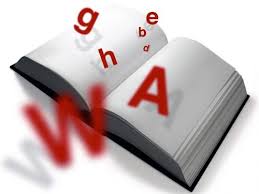OK, so you’ve finally done it! You’ve bought the fancy and highly technical gadget you’ve been saving for, and it is finally in your possession. Now comes the fun part of setting it up and trying it out … BUT, are you still struggling hours later, trying to follow instructions which simply don’t seem to make any sense and are driving you to distraction because they have been roughly and inaccurately scrambled from a foreign language into something which is totally unlike English? Perhaps you are like most of us, eventually putting these instructions aside and trying to work it out on your own? Perhaps you have simply given up and called in a paid professional to put everything together or, worse still, abandoned all hope and gone to sulk in a corner.

Been there – done that (and failed …)
This has been my own miserable experience in the past on a couple of occasions, so I am not in a position to stand on a soapbox and preach to anyone. I have come to understand that it is not my inability to think rationally and follow such instructions which has defeated me, but rather the poor quality of the translation of the instructions from one language to another. I can never understand why these instruction manuals, especially on highly technical or complex matters, are not checked with a qualified translator who can ensure that the meaning is clear and unambiguous after translation.
Why do we need translators anyway?
We NEED properly skilled and qualified translators in our global world. It is becoming increasingly obvious that English is becoming the “lingua franca” of the world. Lingua franca may be defined as a language which is used as a common means of communication between speakers whose native languages are different. The use of the English language itself is somewhat of a novel phenomenon due to the extent to which it is globally used. It makes sense that there should be one language which links all the nations of the world, and this is where translators are so important. They are the specialists who ensure that communication within the ‘language mix’ of the world is understood by all.
Translators and Interpreters. Are they the same thing?
Translators work with the written word. Interpreters, on the one hand, are employed to translate verbal questions and conversations instantly between a group of different language speakers. If, for instance, you have a German businessman wishing to forge business links into another country whose citizens do speak, read, write or understand German, both a translator and an interpreter would be required to provide a common ‘language platform’ upon which to build the business relationship. Both of these specialists are responsible for bringing the languages of all concerned into a mutual understanding of one another. In such a case, the interpreter would be providing a ‘language platform’ upon which discussions can take place, whilst the translator is involved in written work, ensuring that any documentation flows smoothly and its meaning remains as close to the original language as possible. So, to a large extent, a translator is an author with a good understanding of both languages involved. This goes far beyond simply translating a word or sentence, as is, in the original language into that of the target language. Think of Afrikaans, for example. If an Afrikaans-speaking person asks “Waar woon jy?”, this cannot be translated exactly word for word into English, as the sentence will then be “Where live you?”, which is obviously grammatically incorrect in English, and should instead be translated to “Where do you live?”. This change does not affect the original meaning or tone in any way, but is important in creating a translation which makes sense to the reader. The translator therefore has to understand the language structure of the source language, as well as its grammatical rules.
Know the rules of language translation
Reputable and highly skilled translators have an excellent knowledge of the grammatical make-up and meaning of the languages with which they work. Their expertise takes into account idiomatic speech and the correct “do’s” and “don’ts” within each language, as well as cultural differences where words reflect the culture and the society which uses them. It would be true to say that translation is culture-related.
Know your subject and the culture of your source language
Medical, technical, scientific, legal, mechanical and industrial translators in particular must have a good understanding of the subject matter being translated, and it is easy to understand why. These industries themselves are dependent upon familiarity with and good knowledge of the specialised field itself. This demands accuracy and meaningful context which is unambiguous. A good practice for a translator would be to translate not only from source to target language, but also vice versa. Such an exercise would clearly show up areas where the meaning has become distorted during translation, or the tone of the article has changed. As a matter of fact, comedic speech and sarcasm are probably the most difficult areas to reflect accurately during translation, mainly due to cultural differences.
If your own language knowledge is poor – please don’t become a translator!
Translators are a specialised source of knowledge in their own native language as well as the language or languages with which they work. A skilled and experienced translator will ease the burden considerably when venturing into foreign countries where language would otherwise be a major hurdle. When looking for a translator, online sites such as Uptasker will definitely assist your search by providing both online ratings and customer reviews for the translation services on its site. Find someone who does the job without losing any of the original text’s integrity, and you have found a valuable gem!

